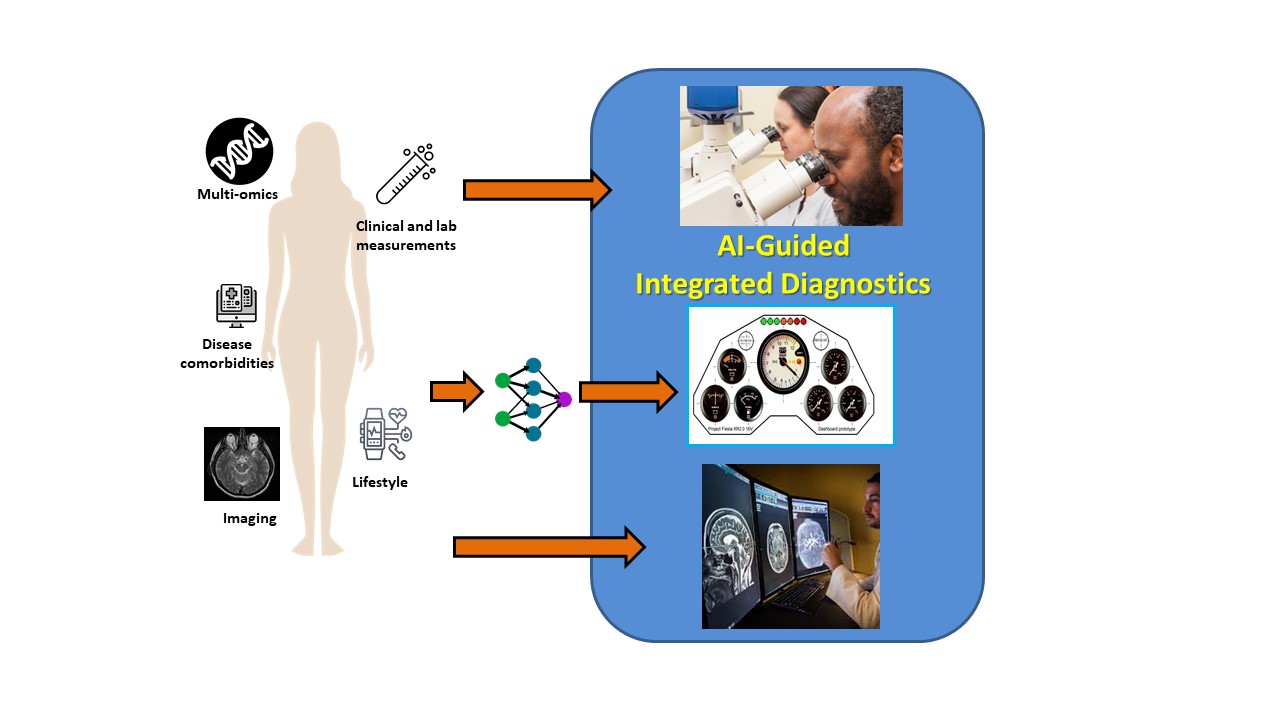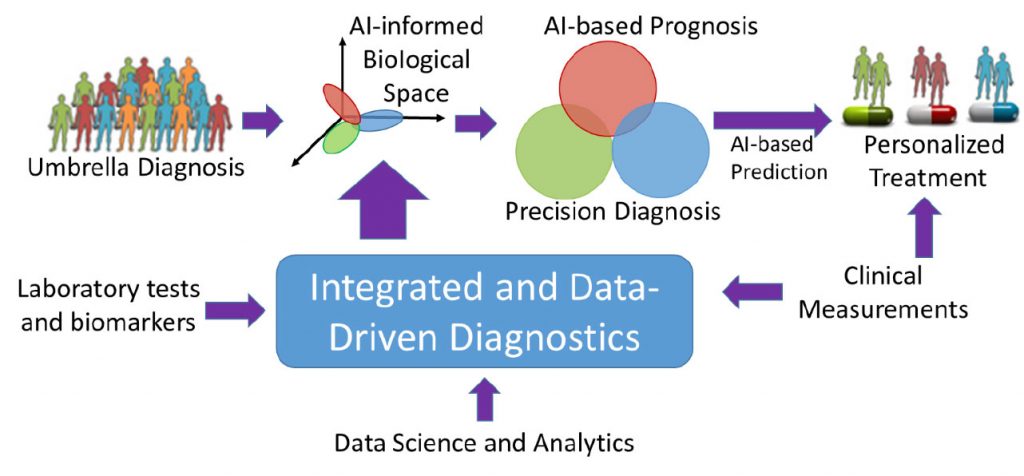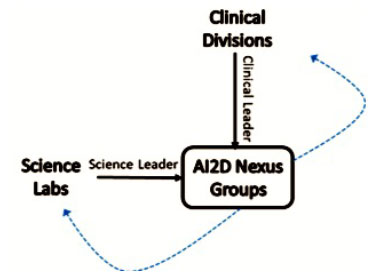
What we do
AI2D: Center for AI and Data Science for Integrated Diagnostics
The AI2D Center was formed in 2022, bringing together a community of faculty, trainees and staff working in the broader field of AI and Biomedical Data Science, as it applies to the field of Integrated Diagnostics, i.e. the synthesis of diverse and complementary types of biomarkers contributing to precision diagnostic.
Scope of Center
Medicine has been steadily moving to a new era, which places more emphasis on: 1) precision diagnostics and treatment, in contrast to one-fits-all treatments or general umbrella diagnoses which are often confounded by considerable heterogeneity; 2) quantification, rather than empirical/qualitative, evaluations via numerous and diverse “laboratory” measurements (in a very broad sense) and biomarkers, leading to biologically- and data-driven diagnoses; 3) being proactive, rather than reactive, which includes leveraging predictive statistical and AI models for risk assessment, early detection, prognosis and prediction of therapy success.
Laboratory measurements (including those currently provided by Pathology and Laboratory Medicine, and Radiology), as well as data science which can synthesize large amounts of such measurements into (potentially complex) AI-based “in silico” biomarkers, play an increasingly important role in this transformation of medicine. In particular, large and diverse sets of data along with various analytics methods, especially AI and deep learning, allow us to discover mechanisms of normal and abnormal function, to construct biologically-based models of diseases by better dissecting their heterogeneity, and to develop personalized AI-based predictive models:
In that respect, data science is emerging as a critical node where various diagnostic, prognostic, and treatment guidance biomarkers/tests/measurements meet, in order to help deliver integrated diagnostic decisions and planning of personalized treatments. The Center is positioned to contribute to Penn Medicine and to the research community in this direction.
Areas of Focus
The Center focuses:
1) on the clinical front, primarily in the emerging Integrated Diagnostics program, co-led by the departments of Radiology and Pathology and Laboratory Medicine. Multi-omic data science is evolving into one of the most effective catalysts of this program, since it is the place where biomarkers and measurements from various laboratory tests meet to assist in precision diagnosis, prognosis, and prediction of treatment success.
2) on the biological scientific front, on understanding, better describing, and modeling disease heterogeneity, including spatial, temporal and inter-patient heterogeneity elucidated in part by imaging in its broad sense (in vivo and tissue-based) and the integration of disparate biomarkers;
3) on the computational scientific front, to methodologies for AI (including deep learning) and data science of big data, the latter defined in terms of size and complexity.
AI2D Nexus: AI-powered Integrated Diagnostics Next-gen User Subgroups
Each of these groups is co-led by a paired clinician and basic scientist who have successfully collaborated on a project using data science methods aiming to advance automation, precision, and quantification in integrated diagnostics in the clinic, and which has reached maturity for evaluation in a clinical trial or piloting in the clinical practice. The AI2D Nexus groups serve as constant translators of data science and AI methods to integrated diagnostic pipelines, and backward translators of clinical feedback on potential improvements at the concepts and implementation of these methods:

Our Events
Seminar Series
Our Published Works
Publications
our articles
Latest News & Blog
A comprehensive summary of the day’s most trending blog posts & news articles from the best Education websites on the web.

